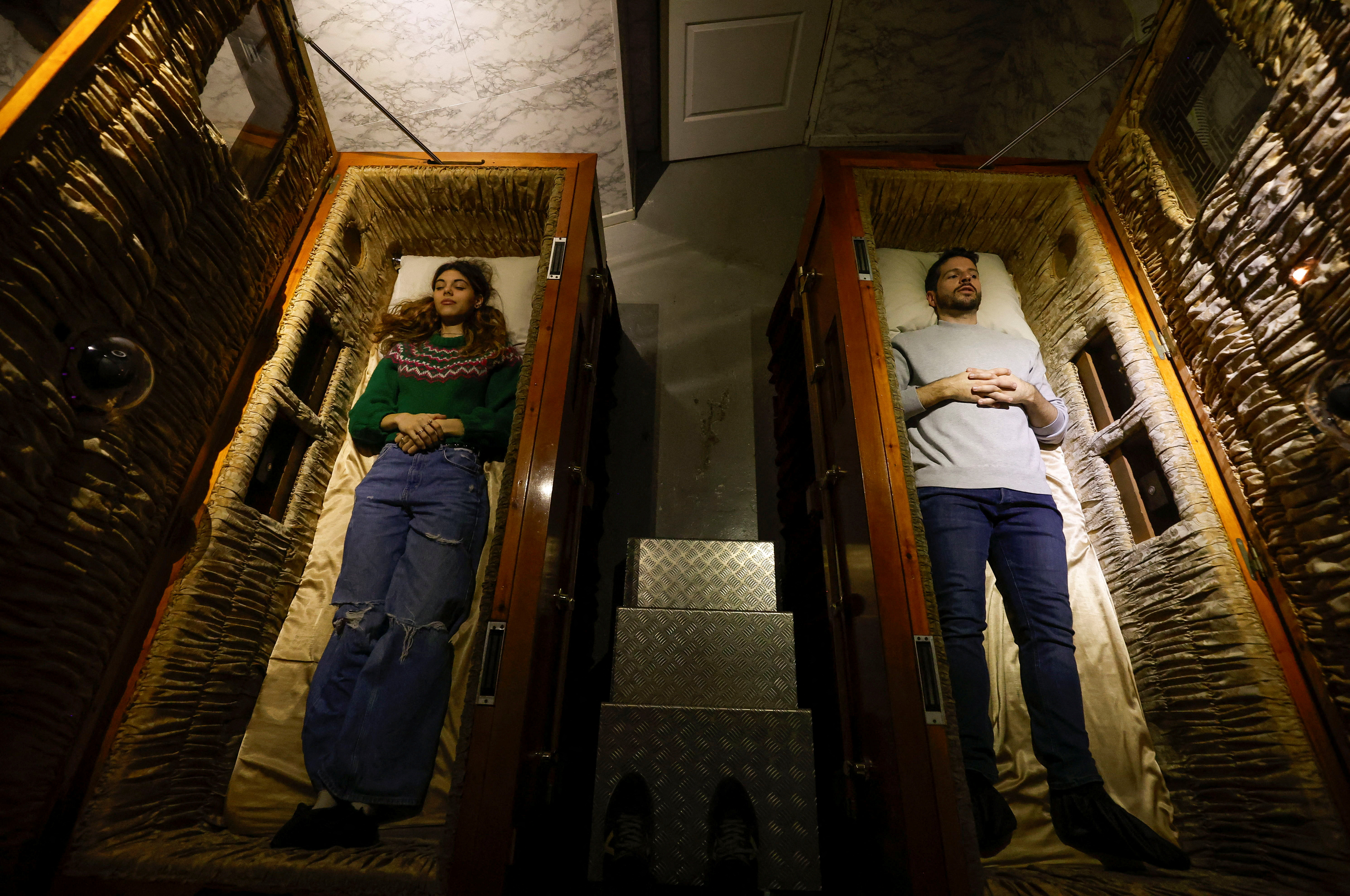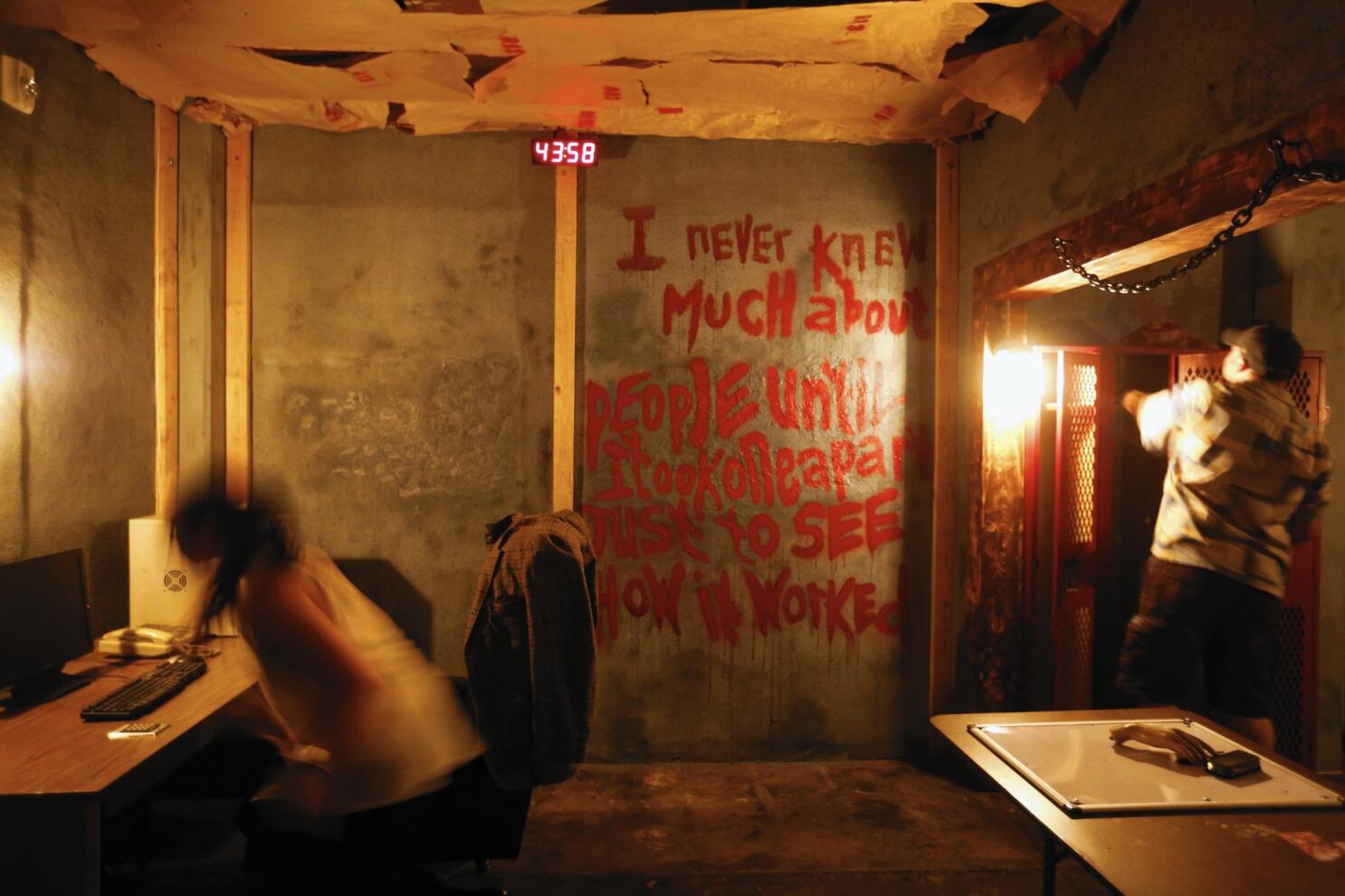Group Approaches: How to Team up Effectively in a Getaway Area
Teams have to proactively listen to each participant's insights, appoint roles that line up with individual toughness, and preserve normal check-ins to make sure focus and stop redundancy. By fostering a setting that values cohesion and flexibility, teams can dramatically heighten their effectiveness and success rates.
Establish Clear Interaction

To promote clear communication, it is vital to mark a central factor of get in touch with for details circulation. This duty involves summing up findings and proposed methods to guarantee everybody remains on the exact same web page. Additionally, adopting an organized strategy to conversations can stop chaotic exchanges. For instance, quick, focused updates from each team participant can maintain the group educated without frustrating them with details.

Assign Duties Tactically
While clear communication establishes the foundation for reliable team effort, assigning functions strategically ensures that each staff member's toughness are used effectively. In a getaway room circumstance, the time-sensitive and complex nature of obstacles requires an efficient method to job delegation. By determining and leveraging individual competencies, teams can maximize their analytical capacities and improve total performance.
First, examine the unique abilities and attributes of each participant. For instance, someone with an eager eye for information might master finding covert things, while a logical thinker can be much better suited to fixing problems - best escape room. It's equally crucial to have a leader who can supervise development, manage the timeline, and make crucial calls when needed. This function frequently calls for strong organizational and social skills.
Second, ensure that functions are versatile and adaptable. As new obstacles arise, the team needs to have the ability to pivot, reapportioning jobs as required. This adaptability assists keep energy and protects against traffic jams that can take place as a result of stiff function projects.
Eventually, a calculated strategy to function job not just maximizes the staminas of each team participant yet likewise fosters a natural environment, driving the group towards a successful escape.
Utilize Diverse Skills
Acknowledging and harnessing the varied skills within your group can substantially elevate your efficiency in a getaway area. Each group member brings special toughness to the table, and properly leveraging these abilities can expedite problem-solving and enhance overall effectiveness. A group member with solid logical skills might stand out at deciphering complex codes or patterns, while one more with eager empirical abilities might quickly find surprise clues that others may forget.
Efficient interaction is vital to utilizing these diverse skills. Urge group members to voice their insights and ideas quickly, making sure that all prospective services are considered. This inclusive technique cultivates a vibrant environment where creativity and important reasoning can flourish. Additionally, assigning tasks that line up with each member's staminas can stop my site traffic jams and make certain that progression is continual.
Moreover, variety in skills frequently translates to variety in assuming designs, which is vital in a retreat room setting. While some obstacles may require rational reasoning and accuracy, others could profit from imaginative and association of ideas. By recognizing and leveraging this variety, teams can resolve a wider series of difficulties more efficiently, thus increasing their opportunities of a successful escape.
Manage Time Efficiently

First, designate preliminary minutes for a fast study of the area. Recognize noticeable problems and separate jobs based upon staff member' staminas, ensuring that nobody is still. Establish interior time checkpoints to assess development periodically; for instance, aim to have half the problems fixed by the mid-point of the video game. This method can assist keep the group concentrated and prevent time from escaping unnoticed.
In addition, avoid tunnel vision. If a challenge is taking too long, revolve employee or carry on to one more obstacle, returning later with fresh perspectives. Interaction is extremely important-- keep every person upgraded on fixed puzzles and continuing to be tasks to stay clear of redundant initiatives.
Finally, make use of any hints or hints sparingly however strategically - best escape room. Understanding when to request aid can save valuable time. By sticking to these time administration concepts, teams can significantly enhance their chances of an effective and enjoyable retreat room experience
Debrief and Show
Representation is a crucial element of team growth and enhancement in the context of retreat spaces. When the challenge address is completed, whether efficiently or not, it is critical for the team to engage in a structured debriefing session. This process allows employee to examine their efficiency, identify staminas, and determine areas anchor for enhancement.
Start the debrief by reviewing what worked out. Highlight certain circumstances of effective communication, analytical, and cooperation. Recognizing these positive habits enhances them and urges their repeating in future obstacles.
Go over minutes of confusion, miscommunication, or inadequate approaches. Urge an open and positive discussion where team members can share their perspectives without fear of criticism.
Conclusion
Finally, effective cooperation in a retreat space is asserted upon clear communication, strategic duty jobs, the efficient use of diverse abilities, and skillful time administration. Normal check-ins and structured debriefings are vital for preserving emphasis and cultivating continual enhancement. By creating a natural and adaptive team setting, the chance of effectively resolving puzzles and attaining the goal of escaping the area is substantially enhanced. This strategy not only guarantees success however likewise advertises cumulative development and knowing.
Comments on “Best Escape Room-- Examination Your Abilities and Fix the Secret”